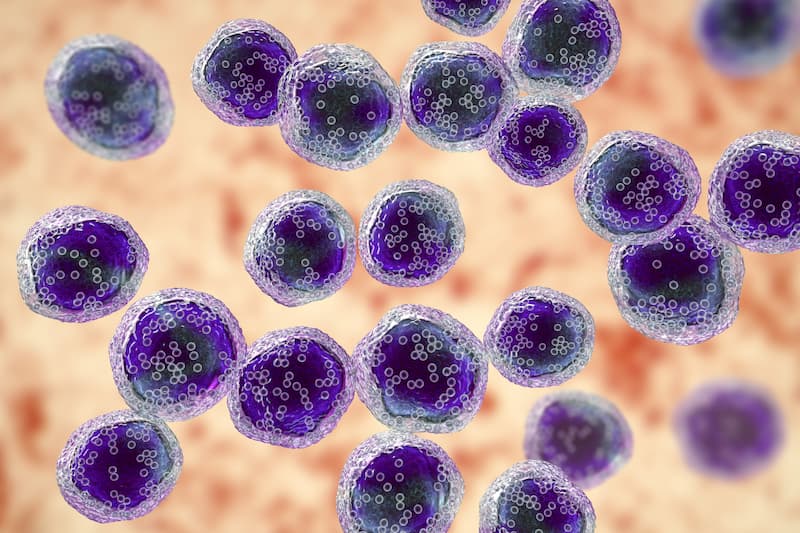FDA Issues CRL for Denileukin Diftitox in R/R Cutaneous T-Cell Lymphoma
The regulatory agency requests enhanced product testing and additional controls in their market application review of denileukin diftitox for the treatment of those with relapsed/refractory cutaneous T-cell lymphoma.
Investigators previously submitted a BLA for denileukin diftitox in relapsed/refractory CTCL to the FDA in September 2022. The FDA then accepted the BLA for denileukin diftitox in December 2022.

The FDA has issued a complete response letter to a biologics license application (BLA) for denileukin diftitox-cxdl (Lymphir) as a treatment for patients with relapsed/refractory cutaneous T-cell lymphoma (CTCL) who have received at least 1 line of systemic therapy, according to a press release from Citius Pharmaceuticals, Inc.1
Although there were no issues concerning the efficacy or safety data included in the BLA submission, the regulatory agency requested the implementation of enhanced product testing and additional controls before proceeding with its market application review.
“We appreciate the FDA's expeditious review of our application,” Leonard Mazur, chairman and chief executive officer at Citius, said in the press release “We intend to provide additional data and remain fully engaged with the FDA as we continue to work toward approval. We remain confident in the potential of [denileukin diftitox] to become an important addition to the treatment landscape for patients with relapsed or refractory CTCL and make a meaningful difference in their lives.”
Investigators previously submitted a BLA for denileukin diftitox in relapsed/refractory CTCL to the FDA in September 2022.2 The FDA then accepted the BLA for denileukin diftitox in December 2022.3
Supporting data for the BLA in this indication came from a multi-center, open-label, single-arm phase 3 trial (NCT01871727). According to previously published findings, denileukin diftitox elicited an objective response rate (ORR) of 36.2% (95% CI, 25.0%-48.7%) based on independent review committee assessment.4 Moreover, the investigator-assessed ORR was 42.3% (95% CI, 30.6%-54.6%).
The incidence of adverse effects (AEs) and serious AEs in the trial were comparable with previous reports of denileukin diftitox. The most common AEs were nausea, fatigue, increased alanine aminotransferase, chills, and peripheral edema.
“The acceptance of the previously announced BLA submission for [denileukin diftitox] is another important regulatory milestone for our oncology program,” Mazur said in a press release at the time of the FDA’s acceptance of the BLA.3
In this phase 3 trial, patients with relapsed/refractory CTCL received denileukin diftitox intravenously over 60 minutes on 5 consecutive days as part of every 21-day cycle.
The primary end points of the trial were dose-limiting toxicities and maximum tolerated dose in the lead-in portion, and ORR in the study’s main portion. Secondary end points included duration of response, time to response, AEs, SAEs, and total body clearance.
Patients 18 years and older with a histopathological diagnosis of CTCL and receipt of at least 1 prior line of therapy were eligible for enrollment on the trial. Additional eligibility criteria for the main study portion included having an ECOG performance status of 0 to 1, a minimum life expectancy of 12 months, and adequate bone marrow reserves and hepatic function.
References
- Citius Pharmaceuticals, Inc. receives a complete response letter from the U.S. Food and Drug Administration (FDA) for LYMPHIR™ (denileukin diftitox) for the treatment of patients with relapsed or refractory cutaneous T-cell lymphoma. News release. Citius Pharmaceuticals, Inc. July 29, 2023. Accessed July 31, 2023. https://shorturl.at/juvwO
- Citius Pharmaceuticals, Inc. submits biologics license application to the U.S. Food and Drug Administration for denileukin diftitox for the treatment of patients with persistent or recurrent cutaneous T-cell lymphoma. News Release. Citius Pharmaceuticals, Inc. September 28, 2022. Accessed July 31, 2023. https://bit.ly/3fy8C1d
- Citius Pharmaceuticals, Inc. announces U.S. Food and Drug Administration acceptance of biologics license application of denileukin diftitox for the treatment of patients with persistent or recurrent cutaneous T-cell lymphoma. News release. Citius Pharmaceuticals, Inc. December 1, 2022. Accessed July 31, 2023. bit.ly/3Upq3jd
- Citius Pharmaceuticals reports topline data from the pivotal phase 3 study of cancer immunotherapy I/ONTAK (E7777) for the treatment of persistent or recurrent cutaneous t-cell lymphoma (CTCL) in support of BLA submission. News Release. Citius Pharmaceuticals, Inc. April 6, 2022. Accessed July 31, 2023. https://prn.to/3CaaHrV
Highlighting Insights From the Marginal Zone Lymphoma Workshop
Clinicians outline the significance of the MZL Workshop, where a gathering of international experts in the field discussed updates in the disease state.